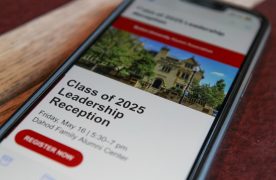In states across the country, Republicans are attempting to suppress students’ votes with restrictive policies such as requiring hefty paperwork and registration to vote out-of-state, according to The New York Times.
It should go without saying that restricting how many registered citizens can cast a ballot is a ludacris violation of democracy.
This is a clear partisan target against young students and all educated voters who are much more liberal than non-educated voters, according to a study by the Pew Research Center. Voter turnout more than doubled among students between 2014 and 2018 and one can imagine the massive turnouts that the heated 2020 presidential race will receive.
Many of these votes came and will come from students frustrated that they were unable to vote in the last election that decisively impacted American politics. As students and young people, we should be proud that as we are given the opportunity to exercise our civic duty, we are choosing to express our voices more and more.
One Republican even went so far as to call students “kids voting liberal, voting their feelings, with no life experience.”
The voting age is 18 years old — as is the age to register for the military draft and be charged as an adult in court. If we are old enough to risk our lives in military and in some states receive the death penalty, the government is clearly holding us to high levels of responsibility and we have the right to contribute to that government.
Absentee voting is already much more difficult than it should be; in many states the process requires a paper application to be sent in the mail weeks in advance. But attempts to strip campuses of polling stations complicates the already inefficient process for students that are too far from home to return to their polling location but not eligible for an absentee ballot.
The blatant restriction of which citizens can and can’t vote in any way, but especially in initially unsuspecting ways like this, is shameful. Furthering a party’s political success not by gaining more voters but by stopping your opponent’s supporters from making their voices heard obstructs the basic tenets of the U.S. Constitution.
In the face of this obstacle to exercising our constitutional rights, students must rise above the superficial blockades to our voting and make changes so that future generations will not wonder whether their vote is valued by their government.














